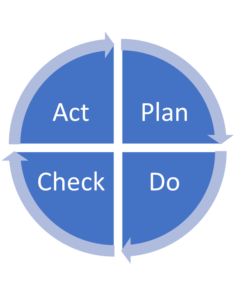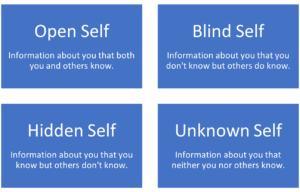Our Autism Resource Specialists are available to provide guidance on a variety of topics related to autism. For adults with autism/self-advocates, one common concern is dating with autism. This blog includes some recent advice given to an adult about dating and disclosing a diagnosis, and we share it because it includes guidance that may help others. However, every situation and every person is unique, especially when it comes to dating. If you have additional questions or concerns, our Autism Resource Specialists can help direct you to resources. You can find information about contacting the Autism Resource Specialist near you on this page.
Here is a recent inquiry from a self-advocate, shared with permission:
I am going to ask someone out for coffee soon. We seem to like each other a lot. I am 30 but did not find out that I am autistic until a few years ago. Should I tell the person I want to date that I am autistic, or not? This is something I never talk about but wonder if I should. This is not the kind of thing I should keep from someone I’m dating, is it? Please give me some guidance.
Our Autism Resource Specialist responded with “6 Dating Basics for Self-Advocates,” our tool for preparing for a relationship. She then responded to some of this adult’s concerns about dating and disclosing autism:
Should I tell the person I want to date that I am autistic, or not?
What people share with other people, and why, depends on several factors and there are too many to list. For that reason, I cannot tell you what you should do regarding this specific question, but I support your choice. If you are questioning or hesitant due to rejection, or fear of that information being shared without your approval, honestly you are not alone, and your uncertainty makes sense.
This is something I never talk about but wonder if I should.
It is important to consider your preferences and what keeps you from identifying as autistic. Do you prefer privacy? Are you camouflaging? Understand for yourself why you do not talk about autism.
In general, we hope that there are people you feel comfortable with enough to talk about autism. Those people can provide closeness, belonging and support. Specifically, you may not want to talk about autism with certain people and in certain settings and that is also OK. Temple Grandin was asked whether everyone should tell their employers they are autistic. She felt that could be done on an individual basis and was not necessary in all instances.
 You could use the Plan (P), Do (D), Check (C), and Act (A) method in this situation. PDCA (not to be confused with PDA*) is an approach to testing out something new or improving actions. It can apply to most aspects of life, including potential romance. These are two ways to approach your current situation:
You could use the Plan (P), Do (D), Check (C), and Act (A) method in this situation. PDCA (not to be confused with PDA*) is an approach to testing out something new or improving actions. It can apply to most aspects of life, including potential romance. These are two ways to approach your current situation:
Option 1
- Choose a healthy goal and plan. Ex: Dating.
- Do what you plan. Ex: Date and do not identify that you are autistic.
- Check or evaluate what that experience is like after a set amount of time.
- Continue with the actions you chose or change your actions based on what works and does not work.
Option 2
- Choose a healthy goal and plan. Ex: Dating.
- Do what you plan. Ex: Date and identify that you are autistic
- Check or evaluate what that experience is like after a set amount of time.
- Continue with the actions you chose or change your actions based on what works and does not work.
This is not the kind of thing I should keep from someone I’m dating, is it?
 The graphic at right, the Johari window, shows that we often have four states of disclosure to others:
The graphic at right, the Johari window, shows that we often have four states of disclosure to others:
Open Self – information about you that both you and others know
Blind Self – Information about you that you don’t know but others do know
Hidden Self – Information about you that you know but others don’t know
Unknown Self – Information about you that neither you nor others know
For the purposes of dating, think about your Open Self and your Hidden Self.
There are pros and cons that are often outside of our control when we choose to open up* to people about who we are, to share our full “Open Self.” Just as there is risk of disappointment if the person does not reciprocate your feelings or accept your invitation, people may not respond to autism the way we hoped. But, when they respond favorably the rewards are worthwhile. One of the nice things about having a friend or an intimate partner can be not having to pretend to be someone else.
When we think about our “Hidden Self” we can practice putting the shoe on the other foot.* What if the person you are asking out for coffee is autistic and you are not? Does it make a difference if they did or did not make you aware? It can be nice to know others for their Open Selves.
If we have already decided in our mind that someone will or will not be interested in us based on your Hidden Self (in this case, your neurodiversity), we are not allowing them to make that decision for themselves. If we are hiding an important aspect of who we are in order to protect ourselves from harm or to increase our odds in the dating pool*, over time we may begin to experience negative feelings about ourselves or others.
If you do or do not decide to share your diagnosis with the person you ask out for coffee, that is OK. Ask other people their opinions as well. At the end of the day*, reflect on that guidance and do what you determine is best for you.
As the Autism Resource Specialist explained to the self-advocate in this situation, there is not one single way to address issues related to disclosure or dating. Still, the Autism Society of North Carolina has resources and tools to help with decision-making. In addition to contacting an Autism Resource Specialist with your specific concern, we also have online tools, listed below.
*Figurative language used in this blog:
PDA – An acronym for Public Displays of Affection, such as kissing, hugging, or holding hands in front of others.
open up – Sharing inner thoughts or personal information.
the shoe is on the other foot – The situation has been reversed.
dating pool – group of people interested in and available for dating; for example, a single heterosexual woman’s dating pool may be defined as single men. Our dating pools can become smaller depending on our preferences for a partner, such as preferred location, age, factors related to appearance, etc.
at the end of the day – your final decision after everything has been taken into consideration
ASNC Tools
I Have Autism – For Autism Self-Advocates
Dating Resources for Self-Advocates – Table for Two
First Date Advice for Autistic Adults
ASNC Forum
The Autism Society of North Carolina offers an online forum that is exclusively for adults with autism. Adult are invited to discuss issues such as disclosure and dating in this forum. Here’s how to join:
Step 1 – Register for the forum here: Autism Society of NC Forum Registration
- Provide your name, email, and user name, and create a password
- Check your email for a confirmation and instructions
Step 2 – If already registered, you can log in here: Forum Log In
This forum is for adults with autism/autistics only. Once logged in you are able to post questions, share ideas, start conversations. Moderators are available to assist if needed.
You can also request access by completing the form on our Autism Self-Advocates page.
External Resources
12 Things to Know About Dating and Autism
Dating Advice for Adults with Autism (video)
What is Dating (pdf)
35 Terms That Describe Intimate Relationship Types and Dynamics
Build Self-Awareness with the Johari Window
Note to reader: This blog is for educational purposes only. The information provided in this blog is not intended as a recommendation, referral, or endorsement of any resource or to verify the credentials, qualifications, or abilities of any organization, product or provider. The Autism Society of North Carolina urges you to investigate and request references when considering any treatment method, resource, or service provider.
Courtney Chavis, ASNC Triage Specialist and mom to a daughter with autism, can be reached at cchavis@autismsociety-nc.org.
Tags: autism, autism acceptance, autism behavior, autism communication, autism dating, autism relationships, autism social skills, Autism spectrum, autistic adults, disclosure, self-advocates Go back
